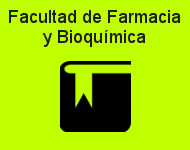3 documentos corresponden a la consulta.
Palabras contadas: phb: 46, accumulation: 53
Almeida, A. - Catone, M.V. - Rhodius, V.A. - Gross, C.A. - Pettinari, M.J.
Appl. Environ. Microbiol. 2011;77(18):6622-6629
2011
Temas: Coexpressed - E. coli - Granule-associated proteins - Heat stress - Heat-shock - Heterologous proteins - Misfolded proteins - PCR analysis - PHB accumulation - Poly(3-hydroxybutyrate)
Descripción: Phasins (PhaP) are proteins normally associated with granules of poly(3-hydroxybutyrate) (PHB), a biodegradable polymer accumulated by many bacteria as a reserve molecule. These proteins enhance growth and polymer production in natural and recombinant PHB producers. It has been shown that the production of PHB causes stress in recombinant Escherichia coli, revealed by an increase in the concentrations of several heat stress proteins. In this work, quantitative reverse transcription (qRT)-PCR analysis was used to study the effect of PHB accumulation, and that of PhaP from Azotobacter sp. strain FA8, on the expression of stress-related genes in PHB-producing E. coli. While PHB accumulation was found to increase the transcription of dnaK and ibpA, the expression of these genes and of groES, groEL, rpoH, dps, and yfiD was reduced, when PhaP was coexpressed, to levels even lower than those detected in the non-PHB-accumulating control. These results demonstrated the protective role of PhaP in PHB-synthesizing E. coli and linked the effects of the protein to the expression of stress-related genes, especially ibpA. The effect of PhaP was also analyzed in non-PHBsynthesizing strains, showing that expression of this heterologous protein has an unexpected protective effect in E. coli, under both normal and stress conditions, resulting in increased growth and higher resistance to both heat shock and superoxide stress by paraquat. In addition, PhaP expression was shown to reduce RpoH protein levels during heat shock, probably by reducing or titrating the levels of misfolded proteins. © 2011, American Society for Microbiology.
...ver más Tipo de documento: info:ar-repo/semantics/artículo
Nikel, P.I. - Pettinari, M.J. - Galvagno, M.A. - Méndez, B.S.
Appl. Environ. Microbiol. 2006;72(4):2614-2620
2006
Temas: Biomass - Cell culture - Escherichia coli - Mutagenesis - Strain - Synthesis (chemical) - ArcA mutants - Leaky mutation - Microaerobiosis - Poly(3-hydroxybutyrate) synthesis
Descripción: We assessed the effects of different arcA mutations on poly(3- hydroxybutyrate) (PHB) synthesis in recombinant Escherichia coli strains carrying the pha synthesis genes from Azotobacter sp. strain FA8. The arcA mutations used were an internal deletion and the arcA2 allele, a leaky mutation for some of the characteristics of the Arc phenotype which confers high respiratory capacity. PHB synthesis was not detected in the wild-type strain in shaken flask cultures under low-oxygen conditions, while ArcA mutants gave rise to polymer accumulation of up to 24% of their cell dry weight. When grown under microaerobic conditions in a bioreactor, the arcA deletion mutant reached a PHB content of 27% ± 2%. Under the same conditions, higher biomass and PHB concentrations were observed for the strain bearing the arcA2 allele, resulting in a PHB content of 35% ± 3%. This strain grew in a simple medium at a specific growth rate of 0.69 ± 0.07 h-1, whereas the deletion mutant needed several nutritional additives and snowed a specific growth rate of 0.56 ± 0.06 h-1. The results presented here suggest that arcA mutations could play a role in heterologous PHB synthesis in microaerobiosis. Copyright © 2006, American Society for Microbiology. All Rights Reserved.
...ver más Tipo de documento: info:ar-repo/semantics/artículo
De Almeida, A. - Nikel, P.I. - Giordano, A.M. - Pettinari, M.J.
Appl. Environ. Microbiol. 2007;73(24):7912-7916
2007
Temas: Bacteria - Biomass - Bioreactors - Biosynthesis - Escherichia coli - Glycerol - Intracellular granules - Polyhydroxyalkanoates (PHAs) - Semisynthetic medium - Stress resistance
Descripción: Polyhydroxyalkanoates (PHAs) are accumulated as intracellular granules by many bacteria under unfavorable conditions, enhancing their fitness and stress resistance. Poly(3-hydroxybutyrate) (PHB) is the most widespread and best-known PHA. Apart from the genes that catalyze polymer biosynthesis, natural PHA producers have several genes for proteins involved in granule formation and/or with regulatory functions, such as phasins, that have been shown to affect polymer synthesis. This study evaluates the effect of PhaP, a phasin, on bacterial growth and PHB accumulation from glycerol in bioreactor cultures of recombinant Escherichia coli carrying phaBAC from Azotobacter sp. strain FA8. Cells expressing phaP grew more, and accumulated more PHB, both using glucose and using glycerol as carbon sources. When cultures were grown in a bioreactor using glycerol, PhaP-bearing cells produced more polymer (2.6 times) and more biomass (1.9 times) than did those without the phasin. The effect of this protein on growth promotion and polymer accumulation is expected to be even greater in high-density cultures, such as those used in the industrial production of the polymer. The recombinant strain presented in this work has been successfully used for the production of PHB from glycerol in bioreactor studies, allowing the production of 7.9 g/liter of the polymer in a semisynthetic medium in 48-h batch cultures. The development of bacterial strains that can efficiently use this substrate can help to make the industrial production of PHAs economically feasible. Copyright © 2007, American Society for Microbiology. All Rights Reserved.
...ver más Tipo de documento: info:ar-repo/semantics/artículo






























